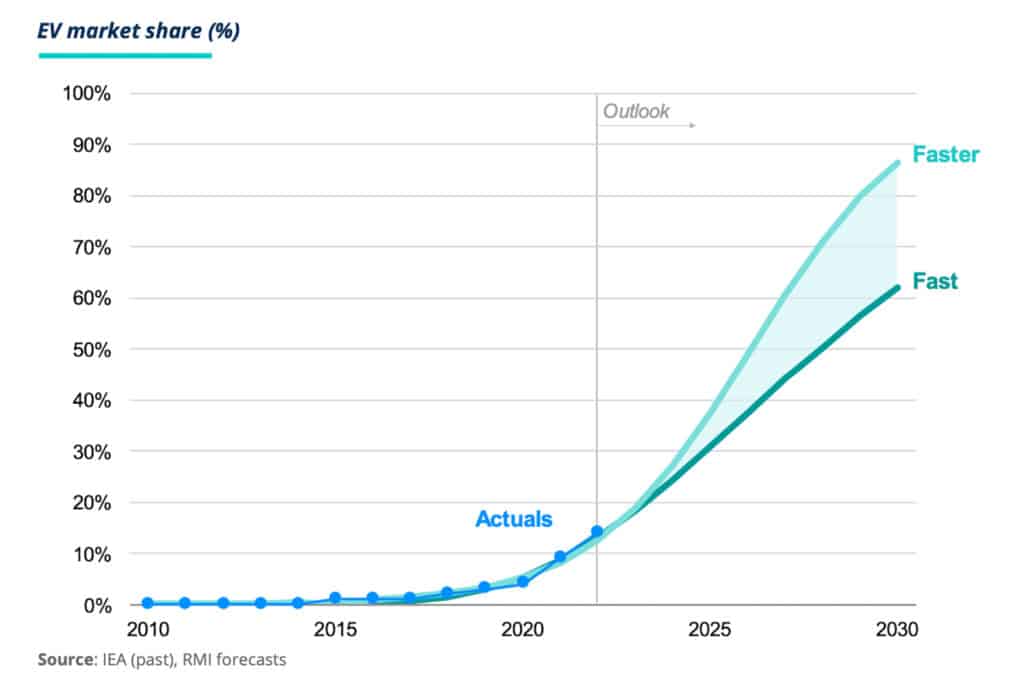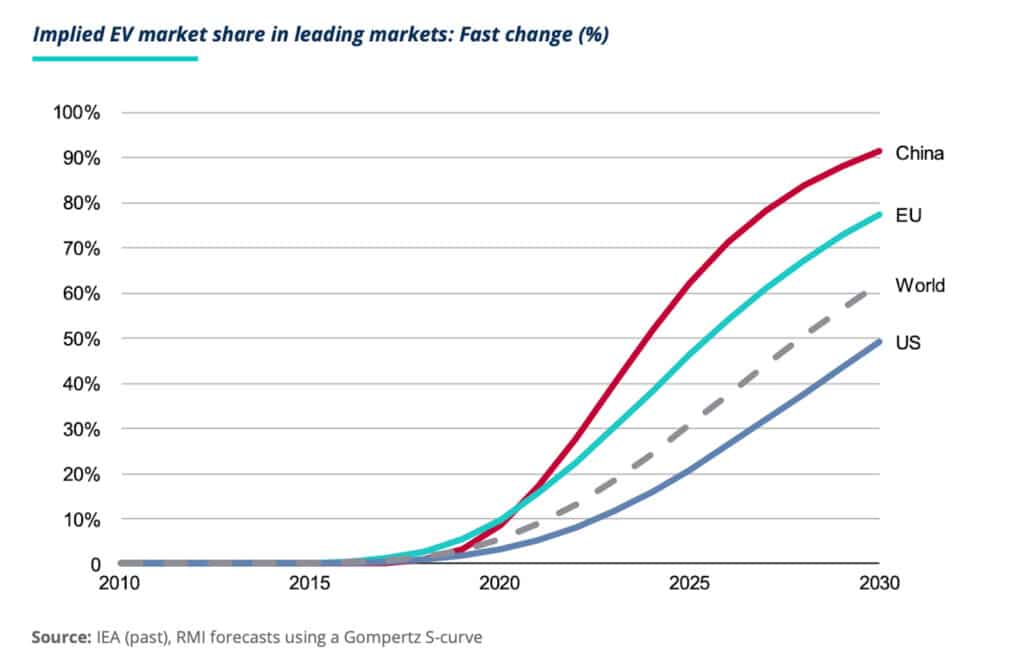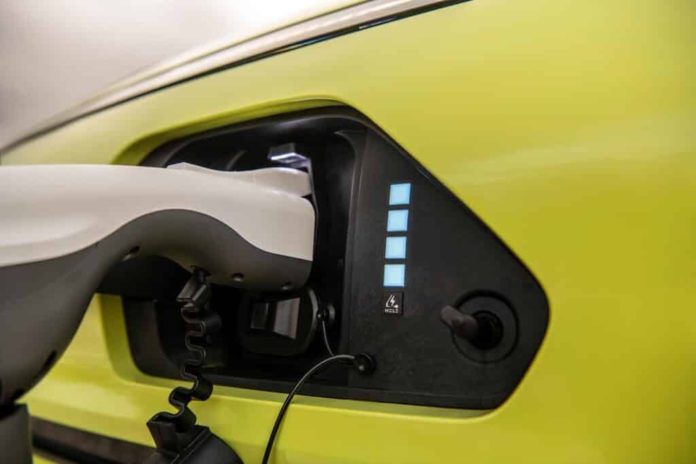Growth in EV sales is accelerating globally, according to a new report from the Rocky Mountain Institute (RMI), a non-profit think tank that seeks to improve American energy usage practices.
According to the report, RMI believes EVs will dominate global car sales by the end of this decade, potentially halving global oil demand.
EV sales growth accelerating
According to the report, much of the EV sales growth and drop in fossil fuel demand will be driven by China, which is now by far the world’s greatest consumer of new vehicles. For calendar 2022, China was the largest single-country car market in the world.
Chinese consumers bought 23,240,500 vehicles in 2022, an increase of over 10% year-over-year. Chinese sales are slightly lower than all of Europe and North American markets combined. By 2025, RMI expects EV prices in China to achieve parity with internal combustion vehicles, and the Chinese government is strongly pushing a transition to electric.
Europeans are expected to see price parity between EV and ICE vehicles next year, and in the United States by 2026. A rapid shift in purchasing decisions is likely to occur once EVs become cheaper to buy than fossil-fueled vehicles, according to a third, new body of research by Exeter University’s Economics of Energy Innovation and System Transition (EEIST) project.

Professor Mei Mei Aileen Lam, from the EEIST project, said: “Coordinated policy action to phase out fossil-fueled vehicles by 2035 in the EU, US, and China can bring forward EV purchase-price parity by years, in those markets and beyond. It would bring forward the tipping point in India a whole three years from 2027 to 2024. It would enable a faster, cheaper — and therefore fairer — transition for everyone.”
According to RMI, the European and Chinese markets have already crossed a tipping point in which small- and medium-sized EVs are now cheaper to own in the EU and China. As a result, global EV sales are on track to meet or outpace even the most ambitious net-zero timelines and could account for more than two-thirds of market share by 2030, following exponential growth trends.
China is on course for 90% EV sales by 2030, up from a third today, with a growing number of markets on similar “S-curves” to hit up to 80% market share by the same date, as the race for EV supremacy speeds up, the research from RMI shows. China sold more EVs last year than the rest of the world combined, thanks to strong policy support. China dominates production of EVs, batteries, and other components, which is further driving down battery costs and making EV adoption easier all over the world.

RMI found that global ICE vehicle sales peaked in 2017, and by the middle of the decade more will be scrapped than sold, implying that the overall fleet of combustion cars is about to peak and will be in freefall by 2030 as ICE vehicles age out of service and are replaced with EVs.
Impact on global oil demand
As internal combustion cars account for about a quarter of global oil demand and broader road transport accounts for nearly half, the exponential growth of EVs puts all of that oil demand at risk. Oil demand for cars peaked in 2019 and will be falling by at least 1 million barrels per day every year after 2030, eliminating expected growth in oil demand for cars, according to the RMI forecasts.
“Electric vehicles are on track to dominate global car sales by 2030, signaling the endgame for the largest sector of oil demand,” said Kingsmill Bond, senior principal at RMI. “And where cars lead so the rest of transport will follow. Exponential change is spreading to 2-wheelers across the Global South and to trucks in China. This is good news for cutting emissions and improving public health. But it also shifts money from the hands of petrostates into the pockets of consumers.”
As momentum increases, RMI expects more countries, companies, and regions to announce shared pathways and target dates to phase out petrol-powered cars. With road transport alone accounting for around 10% of global emissions, the transport sector plays a critical role in meeting the goals of the Paris Agreement.

